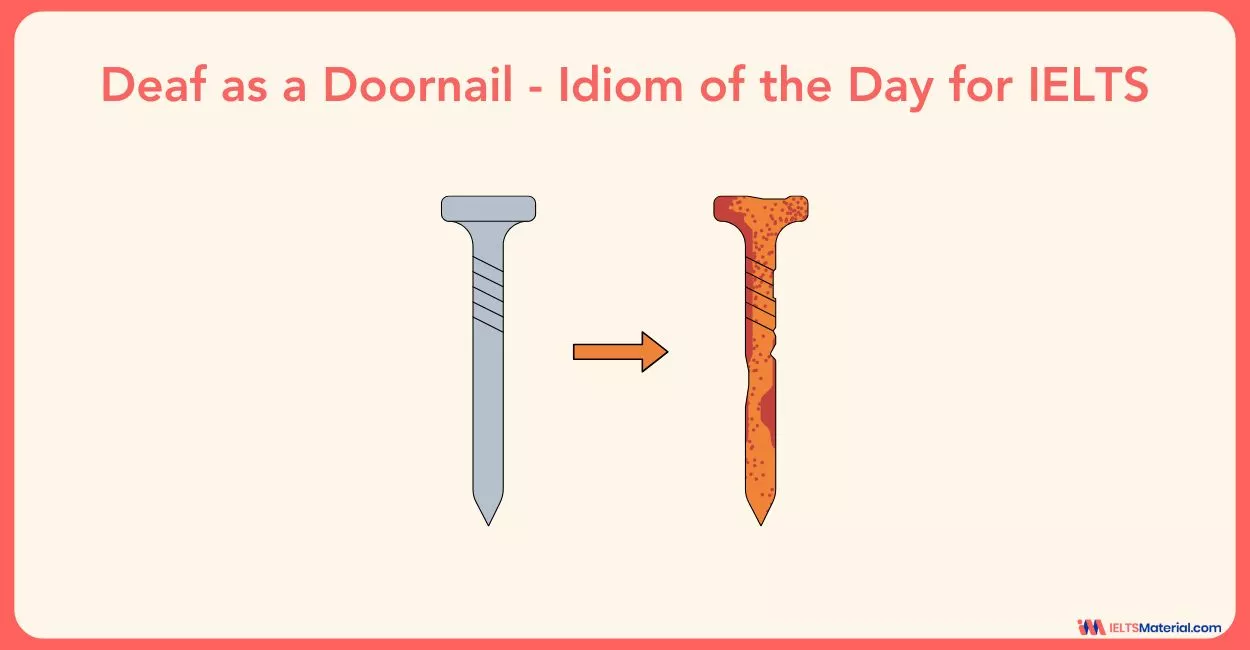Rank and File Idiom: Meaning, Origin, Usage & Exercises
5 min read
Updated On
-
Copy link
The idiom ‘rank and file’ refers to the ordinary members of an organization who do not have senior positions. Discover how it is used in IELTS, its history, and practice the provided exercises to boost your IELTS vocabulary and get a band score of 7+.
Table of Contents

Limited-Time Offer : Access a FREE 10-Day IELTS Study Plan!
In the IELTS exam, students are often asked to discuss topics like leadership, teamwork, workplace roles, or government systems. In such contexts, using useful idioms for IELTS Speaking to score band 8.0+, such as ‘rank and file’, can add fluency and lexical flexibility to your language.
This blog explores the meaning, origin, and IELTS-specific usage of the 'rank and file' idiom, along with exercises to solidify your understanding.
Rank and File Idiom: Meaning
The idiom ‘rank and file’ refers to the ordinary or lower-level members of an organisation, such as employees, workers, soldiers, or party members, as opposed to leaders or officials.
While the Cambridge Dictionary defines it as ‘the ordinary members of an organization and not the leaders’, Oxford Learner’s Dictionary states that the idiom means ‘the ordinary soldiers who are not officers; the ordinary members of an organization’.
Origin of Rank and File Idiom
The phrase, rank and file, originated as a military term back in the 16th century. This is because troops used to stand next to one another (rank) and in a straight line (file) while marching. And the other officers used to march on the formation’s outside.
Its early example was printed in The Theorike and Practike of Moderne Warres by Robert Barrett. It referred to ordinary members of an organization. The columns and rows of soldiers without the officers, drawn for a drill, were known as ranks and files.
It wasn’t until the 19th century that this phrase started being used for other groups as well. In fact, even chess pieces are generally described as ranks and files, as the game is linked to warfare quite often.
Rank and File Idiom Usage
Let us go through some examples that will help you learn the usage of the idiom, rank and file, effectively and achieve your desired IELTS band score.
- The rank and file of the organization started doubting the decisions of officers.
- The salaries provided to rank and file is not up to the industry standards.
- The rank and file of the country lost confidence in the leadership of the current party.
- These salary cuts will definitely be huge blows for the rank and files of the company.
- With a new bill that accepts their demands, the rank and files of the labour class are rejoicing.
- In a factory that runs on Artificial Intelligence, it might be difficult to hire a rank and file.
Join us in our free webinars to learn tricks to improve IELTS vocabulary! Join Now!
Rank and File Idiom: Synonyms and Related Phrases
We have listed some common idioms in IELTS Speaking related to the idiom, rank and file.
|
Idiom/Expression |
Meaning |
Example Sentence |
|---|---|---|
|
Common Run |
average, ordinary people. |
Healthcare must be accessible to the common run of society, not just the wealthy elite. |
|
Common Sort |
people of ordinary status. |
Art museums often cater to elites, but exhibitions should also reflect the interests of the common sort. |
|
Everyman |
a typical or ordinary person. |
Climate policies must consider the needs of the everyman who cannot afford major lifestyle changes. |
|
Tom, Dick & Harry |
any ordinary person; average people. |
These new policies don’t benefit the average Tom, Dick, and Harry who struggle with rent. |
|
Plain Folks |
regular people, often used in politics. |
Election campaigns often use plain folks appeals to gain trust from the working class. |
Are you having difficulty improving your vocabulary for IELTS?
Book a FREE Demo!
Rank and File Idiom: Detailed Usage in IELTS Contexts
Use the idiom, rank and file, to highlight the mass participation of everyday people in decision-making, work processes, or protests, perfect for IELTS Writing Task 2 essays about democracy, society, and business structures.
IELTS Speaking Part 2
- Cue Card Topic: Describe a workplace or team you’ve been part of
- Answer Excerpt: “I once worked as a volunteer at an NGO. While the leaders were responsible for strategy, the rank and file did most of the hands-on work - coordinating events, raising awareness, and dealing with people directly. Their contribution was crucial to the success of every project.”
IELTS Writing Task 2
- Topic: In large companies, decision-making should only be left to top executives. To what extent do you agree or disagree?
- Answer Excerpt: Relying solely on upper management for decision-making can lead to strategies that are out of touch with operational realities. Involving the rank and file in some decisions can improve morale and ensure that policies reflect on-the-ground experiences. These workers often understand customer needs, technical challenges, and internal processes far better than executives sitting in boardrooms.
Rank and File Idiom: Practice Exercise
The exercises below will help you learn the correct usage of the idiom ‘rank and file’, allowing you to understand its meaning and application.
Exercise A: Choose the correct option.
1In which of the following sentences is ‘rank and file’ used correctly?
A The rank and file decided the company’s strategic direction on their own.
B The rank and file were promoted to CEO positions last month.
C The CEO always consults the rank and file before making final decisions.
D We sent the rank and file on an overseas business trip with the board of directors.
2 Which of these roles would typically NOT be considered part of the ‘rank and file’?
A Factory line workers
B Regional Sales Manager
C Customer service representatives
D Security guards
3 Choose the correct sentence that reflects the spirit of the idiom ‘rank and file’.
A The company's success depends largely on the hard work of its rank and file employees.
B The rank and file made most executive decisions in last quarter's board meeting.
C The rank and file initiated a stock buyback programme to boost valuation.
D Our rank and file team is composed entirely of C-level executives.
4 Why might a politician want to appeal to the ‘rank and file’?
A To win grassroots support from ordinary party members
B To gain support from elite party members
C To impress wealthy donors
D To form coalitions with other senior leaders
5 Which context best illustrates a misuse of the idiom ‘rank and file’?
A Union leaders met with the rank and file to explain the new contract terms.
B Our company’s innovation stems from the creativity of the rank and file.
C The rank and file were given stock options typically reserved for directors.
D The rank and file approved the merger in the shareholders’ executive council.
Looking for a comprehensive resource to boost your IELTS vocabulary?
Begin with our Vocabulary for IELTS!
Rank and File Idiom: Answer Key for Practice Exercises
1 C
2 B
3 A
4 A
5 D
To conclude, the idiom ‘rank and file’ is a useful expression when discussing social justice, employment, or governance in IELTS Speaking and Writing responses. By learning this idiom, you not only expand your lexical resource but also demonstrate the ability to think critically and speak persuasively about real-world structures. Therefore, experiment with using it in your speaking responses for IELTS Speaking practice tests.
Useful Links:
- Grasping at Straws Idiom: Meaning, Origin, Usage & Exercises
- Second-Class Citizen Idiom: Meaning, Origin, Usage & Exercises
- The Silent Majority Idiom: Meaning, Origin, Usage & Exercises
- Latest IELTS Speaking Vocabulary to Boost Your Score: Topic-Wise
- Top Synonyms for Common Adjectives in IELTS Speaking & Writing
- IELTS Academic High-Frequency Vocabulary Words
Explore IELTS Resources

Start Preparing for IELTS: Get Your 10-Day Study Plan Today!
Check out other Idioms

Haniya Yashfeen

Haniya Yashfeen
Recent Articles

Kasturika Samanta

Prity Mallick

Nehasri Ravishenbagam







Post your Comments